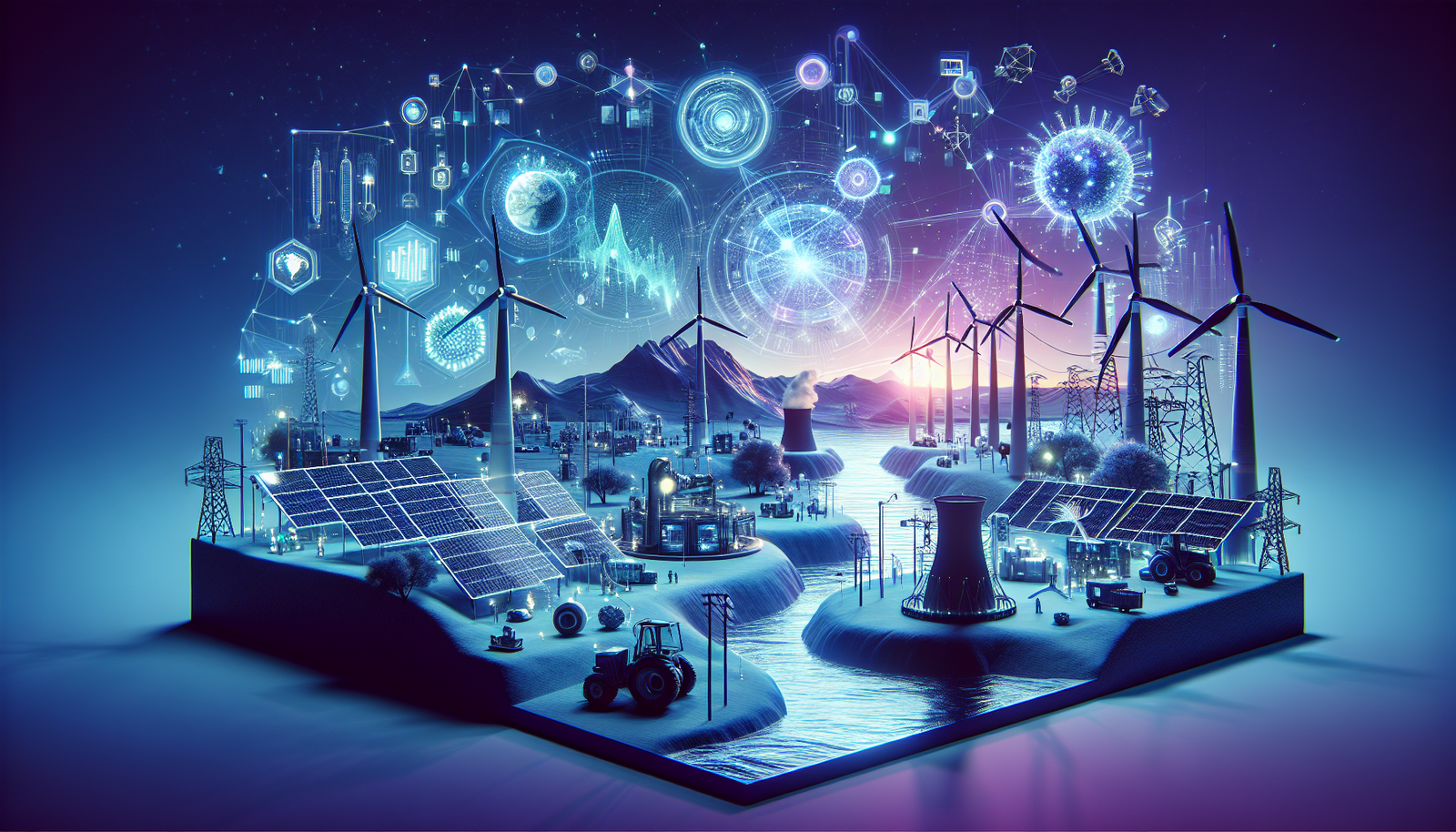Renewable energies are emerging as a strategic lever in the technological rivalry between nations. *Ensuring energy autonomy* becomes a geopolitical imperative in the face of China’s expansion. *Adopting sustainable energy solutions* influences not only economic competitiveness but also scientific dominance. Massively investing in these technologies offers opportunities to propel innovation in artificial intelligence, thus ensuring an advantage on the global stage. Skill and vision come together to transform energy challenges into decisive assets for the technological future.
The necessity of renewable energies
Renewable energies are positioned as an essential engine in the fight for technological supremacy, particularly against China. Dependence on fossil fuels is becoming increasingly obsolete as nations seek sustainable energy sources to power their technological infrastructures. The integration of renewable energies proves crucial for reducing CO2 emissions and combating climate change.
China and its technological dominance
China asserts itself as a global leader in the field of artificial intelligence (AI), its lead often attributed to massive investments in research and development. With its industrial capabilities, Beijing is developing AI-based technologies at a frenetic pace. For competing nations, it becomes imperative to strengthen their own technological ecosystem.
Synergy between AI and renewable energies
The correlation between AI and renewable energies presents a promising angle. AI systems can optimize the production and distribution of renewable energy, making these sources more accessible and effective. This innovation could transform how electricity is managed, fostering a more seamless integration of diversified energy networks.
Encouraging local innovation
Governments must encourage the development of technologies related to renewable energies. Investing in local initiatives would not only reduce energy dependence but also stimulate job creation in the clean energy sectors. These provide a viable alternative to traditional jobs threatened by the energy transition.
The role of companies and start-ups
Companies, especially start-ups, play a key role in this equation. By constantly innovating, they contribute to achieving climate goals while developing technological solutions moving toward energy autonomy. These initiatives allow companies to stand out in the global market.
Consistency in energy policy
Consistency in the energy policies of different countries directly impacts their ability to compete. Clear commitments to renewable energies attract foreign investments and foster strategic partnerships. Thus, countries uniting their strengths to face China’s technological dominance could benefit from a multiplier effect.
Challenges and perspectives
The path to energy autonomy and technological dominance is not without challenges. The energy transition requires colossal investments as well as a transformation of mindsets. Countries must overcome regulatory and technical obstacles to ensure a broader adoption of renewable energies.
Conclusion: A strategic necessity
Renewable energies not only represent a response to environmental requirements but also a strategic necessity for countries wanting to compete with China in the field of AI. Through this dynamic, a new era of innovation could emerge, redefining the hierarchy of global technological powers.
Frequently asked questions
Why are renewable energies crucial for the development of AI against China?
Renewable energies play a key role in the sustainable development of AI technologies. They help reduce carbon footprints and ensure a stable energy source needed for the servers and data centers powering AI systems, essential in global competition.
How do investments in renewable energies improve AI competitiveness?
Investments in renewable energies help reduce long-term energy costs, thus providing technology companies with a financial advantage. This enables them to allocate more resources to research and development, strengthening their position in the AI race.
What is the impact of renewable energies on innovation in AI?
Renewable energies foster an environment conducive to innovation, as they encourage sustainable practices that attract new talent and funding in the tech sector. This also stimulates the development of more energy-efficient AI algorithms.
How does China’s energy dependence affect its development in AI?
China’s energy dependence on fossil fuels may impose limits on its development in AI, creating uncertainties regarding the sustainability of the necessary infrastructures. In contrast, investments in renewable energies can enhance the country’s resilience and competitiveness in this area.
Which countries are leading in the integration of renewable energies and AI?
Countries like the United States, Germany, and Denmark are at the forefront in integrating renewable energies into AI development. They are implementing incentive policies for technological innovation and energy transition, thus positioning their AI industries to compete effectively.






